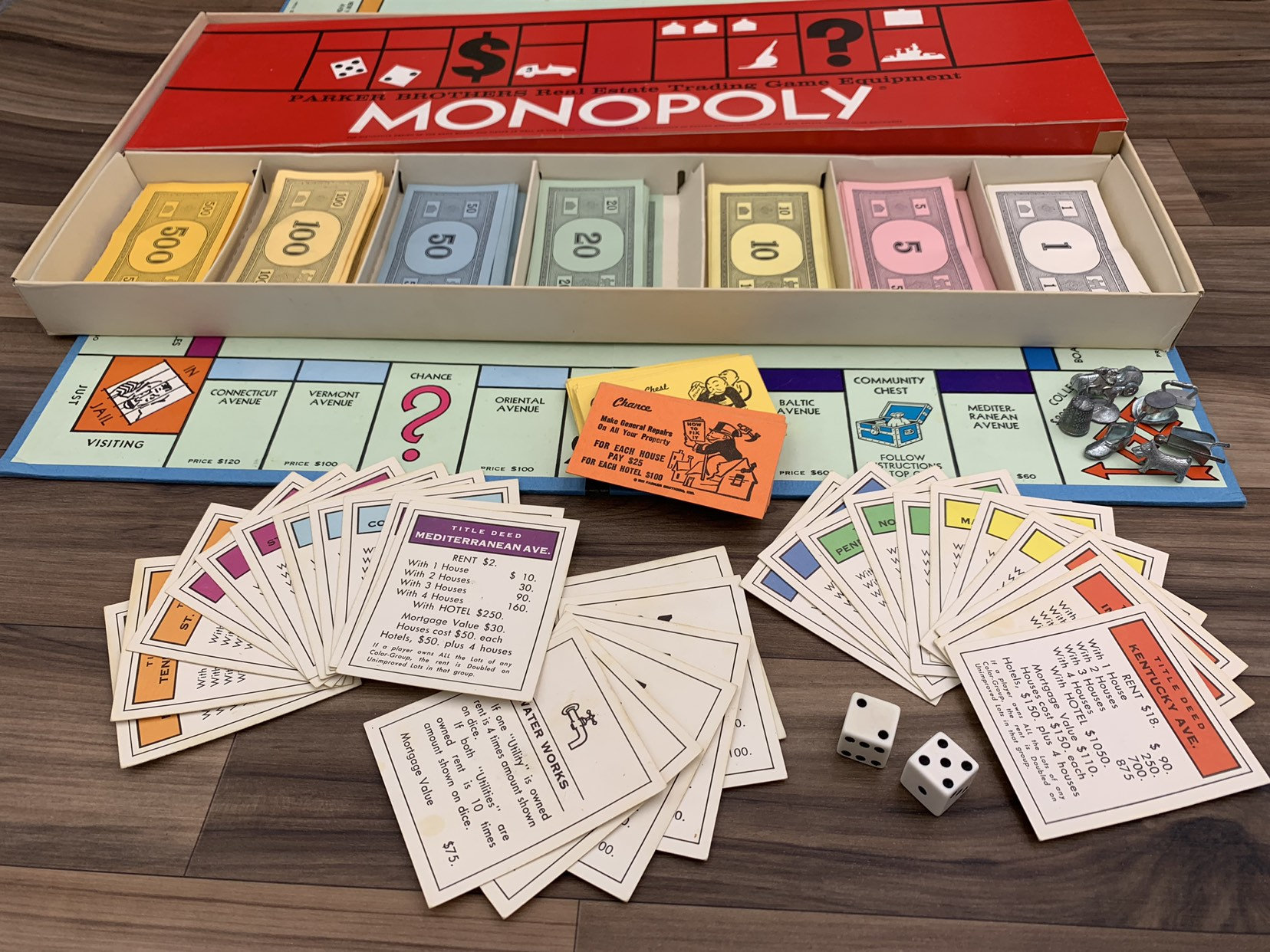Exploring the Strategies and History of Monopoly

For serious players, mastering property management is the first step to triumph. Focus on acquiring color sets quickly, particularly those with high rent values, such as orange and red zones. These yield substantial returns, especially when houses are constructed.
Away from properties, understanding card dynamics is key. Develop a strategy to capitalize on Chance and Community Chest cards, while avoiding costly taxes and penalties. This nuanced approach reduces risks and enhances financial stability during gameplay.
Tracing roots of this board game reveals a fascinating evolution. Originally inspired by economic principles, it has transitioned through various iterations since its inception in the early 20th century. Knowledge of past variations can provide insights into current gameplay techniques.
By continuously refining approaches and embracing historical context, players can elevate their gaming experience significantly. Aim for strategic trades and build alliances when necessary, as these interpersonal dynamics can be the linchpin of success.
The Evolution of Monopoly: Key Historical Milestones
To grasp the development of the popular board game, consider these significant points:
- 1903: Elizabeth Magie patented "The Landlord’s Game," intended as a critique of monopolistic practices.
- 1933: Charles Darrow adapted Magie's concept, leading to the commercial success of "Monopoly" after selling it to Parker Brothers.
- 1935: The game became a household name in America when Parker Brothers officially launched it, selling over 20,000 copies within first few months.
- 1940: The introduction of the first edition with Monopoly money and unique properties, reflecting real places in Atlantic City.
- 1952: The game expanded internationally, with translations and modifications appearing in various cultures.
- 1974: The first expansion packs were released, introducing new features and variations to attract diverse audiences.
- 2000s: The rise of online platforms led to digital versions, allowing for broader accessibility and new gameplay formats.
- 2017: A special edition featuring a cryptocurrency theme was introduced, highlighting modern economic trends.
Continuously innovating, adaptations have allowed this board game to remain popular and relevant across generations.
Understanding the Mechanics: How Monopoly Works
Each player starts with a set amount of currency, typically $1,500, distributed across various denominations. Players roll two six-sided dice to determine movement around the board, landing on properties, community chest, chance cards, or other spaces that may impose penalties or grant bonuses.
When landing on a property, players may choose to purchase it at the listed price. If they decline, the property is auctioned to other participants, often encouraging bidding wars that can inflate its value. Ownership of properties allows players to build houses and hotels, significantly increasing rent prices for opponents.
Building occurs in phases; players must own all properties in a color group before constructing. Houses must be built evenly across properties within a set group, meaning you cannot place a second house on one property until all in that group have the same number.
Rent amounts vary based on whether properties have houses or hotels. Furthermore, landing on spaces such as "Go to Jail" or "Free Parking" introduces unique dynamics. Players may trade properties or use cards to alter gameplay, balancing risk and strategy in decisions made through turns.
A major aspect of play involves cash flow management. Players must navigate expenses such as rents owed or the cost of constructing buildings. Bankruptcy occurs when a player cannot meet debts and can lead to property liquidation and loss of status in the game.
Players may negotiate trades to gain strategic advantages or block opponents, enhancing competitive aspects. Victory is achieved through financial domination, where one player bankrupts others, demonstrating the importance of both strategy and negotiation skills.
Common Strategies for Winning at Monopoly
Acquire property sets early. Focus on Orange and Red spaces, as they yield higher returns through rent and have a higher landing frequency.
Build houses aggressively. Aim for three houses on each property within a set to maximize rent, as this creates a significant financial burden for opponents.
Trade wisely. Offer trades that benefit you more than your competitors. Look for opportunities to complete your sets while denying opponents crucial properties.
Invest in railroads. Owning all four can provide substantial income, as players frequently land on them, leading to consistent cash flow.
Monitor opponents' cash reserves. Target players who are low on funds or real estate, making them more susceptible to trading or financial distress.
Utilize mortgaging. If cash flow becomes tight, mortgage less critical properties to maintain liquidity, allowing for potential further investments.
Avoid utilities. They often underperform in generating income compared to property sets, making them less valuable in the long run.
Build strategically on the board. Prioritize locations near the Jail. Players coming out frequently land on these properties, providing higher rent returns.
Be cautious with hotels. Once you build hotels, it can drain cash reserves quickly. Focus on houses first to ensure stable income before upgrading.
Plan for cash flow. Keep a reserve of liquid assets to cover rent payments and potential trades. Never leave yourself in a situation where bankruptcy is imminent.
The Role of Trading: Maximizing Value in Gameplay
Prioritize acquiring complete property sets early on. Complete sets allow for more lucrative trades. Having a monopoly on a color group significantly increases your bargaining power with other players.
Utilize trades to offload properties that don’t contribute to your strategy. For instance, if you own two railroads, consider trading one for a property that fits better within your color group. This can enhance your overall potential for income.
Be mindful of the timing of trades. Engage in negotiations when your opponents are in need. If a player is close to completing a set, leverage that urgency to negotiate favorable terms.
Consider offering cash in addition to properties during trades to sweeten deals. Cash can bridge value gaps and make offers more appealing to opponents.
Analyze opponents’ strategies. Identify what they need for their gameplay and use that knowledge for advantageous trades. If an opponent is one property away from a complete set, proposing a trade that benefits you while prioritizing their need can lead to a mutually beneficial arrangement.
Offer trades that also provide long-term benefit to your portfolio. Sometimes, providing an opponent with a needed property can create leverage for future trades or alliances, especially if you anticipate needing their cooperation later in the game.
Be cautious of creating powerful opponents through trades. Avoid giving away key properties or completing your opponent’s color sets unless it serves a significant advantage for your position.
Track trade negotiations, recognizing that each deal impacts future possibilities. If you can read your opponents’ reactions during negotiations, you can better gauge their motivations and adjust your strategy accordingly.
Finalize trades that enhance your position but also maintain your market strength. Aim for deals that do not weaken your holdings but strengthen your competitive edge, ensuring your overall success in gameplay.
House Rules: How Variations Impact Strategy
Implementing variations in gameplay significantly alters tactics employed by participants. For instance, allowing players to manage unlimited cash can lead to aggressive risk-taking, as individuals feel emboldened to invest heavily in properties without fear of bankruptcy. Conversely, a strict cash limit encourages more conservative strategies, focusing on preserving resources.
Introducing free parking as a cash jackpot results in increased hoarding of cash, potentially delaying player interactions with transaction-related mechanics. This can create a standoff effect, altering the frequency of trades and land acquisition. Players might prioritize saving rather than investing in properties, impacting overall game pace.
An auction rule for unpurchased properties intensifies competition, compelling players to make strategic decisions about bidding versus holding back resources. This encourages early-game property acquisitions, fostering a dynamic where players must balance risk against the desire to build monopolies.
Implementing trades that allow for property swaps and financial exchanges can change negotiation tactics significantly. Players develop relationships and alliances, influencing both collaboration and competition. This interaction often leads to unpredictable outcomes based on social dynamics within the group.
Limitations on rent payments for properties can also shift gameplay approaches. Reduced rent makes owning multiple properties less valuable, which may lead players to focus on obtaining diverse assets rather than monopolizing a single color set.
Incorporating rules like "no building houses until all properties in a color set are owned" impacts pacing and strategy as well. This regulation creates a race for completion, prompting a shift in focus towards securing complete sets rather than just land acquisition.
Strategic adjustments are crucial when these house rules are introduced, as they redefine win conditions and player interactions, making each session unique.
Lessons from Monopoly: Business and Investment Takeaways
Focus on location selection. Properties in high-traffic areas tend to yield higher returns. Always assess demand before acquiring assets.
Diversify your investments. Holding a range of properties minimizes risk and can maximize income streams over time.
Prioritize cash flow management. Ensure sufficient liquidity for maintenance and unexpected expenses. Allocate funds wisely for both growth and immediate needs.
Negotiate effectively. Skilled negotiation can significantly reduce acquisition costs or increase rental rates. Build strong relationships with partners and stakeholders for more favorable terms.
Analyze competitors. Understanding rival strategies offers insights for improving your positioning. Tracking market trends can reveal potential shifts in consumer preferences.
| Takeaway | Description |
|---|---|
| Location Matters | High-traffic areas assure better returns. |
| Diversification | Spread investments to minimize risks. |
| Cash Flow | Maintain liquidity for expenses and growth. |
| Negotiation Skills | Effective deals lead to better financial outcomes. |
| Competitive Analysis | Adapt strategies based on market insights. |
Invest in improvements. Upgrading properties can significantly boost value and attractiveness to potential tenants or buyers.
Maintain flexibility. Be ready to adapt strategies based on market shifts or personal circumstances. Quick pivots can protect investments during downturns.
Keep learning. Continuous education about market trends, economic indicators, and new business practices can enhance decision-making skills.

